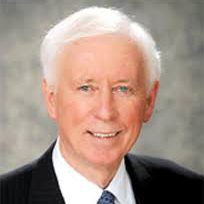NCDs a Deadly Acronym
As I wrote in this presidential blog last week, my nominees for the three most significant items on the plate of the World Medical Association (WMA) and world health are 1. The moral imperative of ethics in medicine. 2. The challenge of noncommunicable disease and 3. The threat of climate change.
Today I will address the challenge of noncommunicable disease (NCD) and in the next blog an equally important and intimately connected reality, the social determinants of health (SCD).
The term non-communicable diseases (NCDS) refers to diseases such as cardiovascular and circulatory diseases, diabetes, cancer and chronic lung disease.
These diseases are now the leading cause of death and disability worldwide. That is true in the developed and developing world. And they are largely preventable.
In addition, they are not replacing existing causes of illness such as infectious disease and trauma, but are adding to the disease burden.
So that developing countries face the triple burden of infectious disease, trauma and noncommunicable disease.
The causes of NCDs are smoking, obesity, physical inactivity and alcohol abuse – all lifestyle behaviors.
The primary solution is disease prevention – that is lifestyle behavior modification.
In a statement adopted at the World Medical Association General Assembly in Uruguay last year the WMA called for national policies that help people achieve healthy lifestyles and behaviors.
- For programs to increase access to primary care
- For medical education systems to be socially accountable; to direct their education, research and service activities towards addressing the priority health concerns of the community, region or nation they serve.
- For strengthening the health care infrastructure to care for the increasing numbers of people with chronic disease. This includes:
- Training the primary health care team
- Improved health care facilities such as hospitals and clinics
- Chronic disease surveillance
- Public health promotion campaigns
- Quality assurance
- Assuring adequate numbers of well-trained and motivated health care professionals
This is a challenge that cannot be met solely by the individual physician seeing a patient in the office, important and essential as that is.
It is a job for all of society – world governments, national medical associations, medical schools, patients and yes – individual physicians working in their communities seeking to affect health policy.
It will not be accomplished easily or quickly. In a speech given in Houston, Texas some fifty years ago, US President John F. Kennedy expressed the challenge and the commitment. He set a goal for the US of going to the moon in the next decade. He said:
“That is a goal that will organize and measure the best of our skills and energies.
That is a challenge we are willing to accept.
A challenge we are unwilling to postpone.
And one we intend to win.”
I vote for winning.
But, life style behaviors, smoking, obesity and alcohol abuse are only part of the story of NCDs.
To get there let me digress.
There is an old fable from this part of the world about three princes who lived long ago in the country of Serendippo – what we now know as Sri Lanka.
Their father, the king, wanted them to have the best possible education.
But even though he hired the very best teachers, he was not convinced that his sons were getting the training they needed to rule as king.
So he sent them abroad, away from the privileges of the palace, to sharpen their wits and broaden their horizons.
And in the course of their travels, by keeping their minds open, more by accident than design, they gained an education that afforded them the wisdom and knowledge to rule.
And years later, the English writer Harold Walpole coined the word “serendipity” based on these stories.
He noted that when the princes travelled, they were always making discoveries and developing the ability to link together seemingly unrelated facts to come to a valuable conclusion.
Louis Pasteur, the French chemist and microbiologist said it this way.
“Chance favors the prepared mind.”
Our consideration of the proximate causes of noncommunicable diseases – tobacco, obesity, alcohol – has led to the in some ways serendipitous understanding that there are equally important causes of the causes – root causes.
These causes of the causes are social determinants of health- the conditions in which people are born, grow, live, work and age, and the societal influences on these conditions.
They are major influences on both quality of life, including good health, and length of disability-free life.
For example:
In many societies, unhealthy behaviors are higher in people on the lower end of the social gradient.
The lower they are in the socioeconomic hierarchy the more they smoke, the worse their diet and the less physical activity they engage in –
Putting them at increased risk of noncommunicable disease.
Lower levels of education have the same effect – increased risk of noncommunicable disease.
Another example is that price and availability are key drivers of alcohol consumption and smoking.
The excellent scientific session we enjoyed yesterday asked the question Megacity – Megahealth?
Illustrating another aspect of social determinants of health.
We are indebted to the work of Sir Michael Marmot and his colleagues for giving understanding and international visibility to this important subject.
For governments, understanding this concept means that all policies need to be evaluated as to their effects on the health of its citizens.
Therefore, not just one designated minister of health.
All ministers are health ministers.
And the medical profession has a valuable role to play in seeking action on these social conditions, the causes of the causes that have such important effects on health.

